
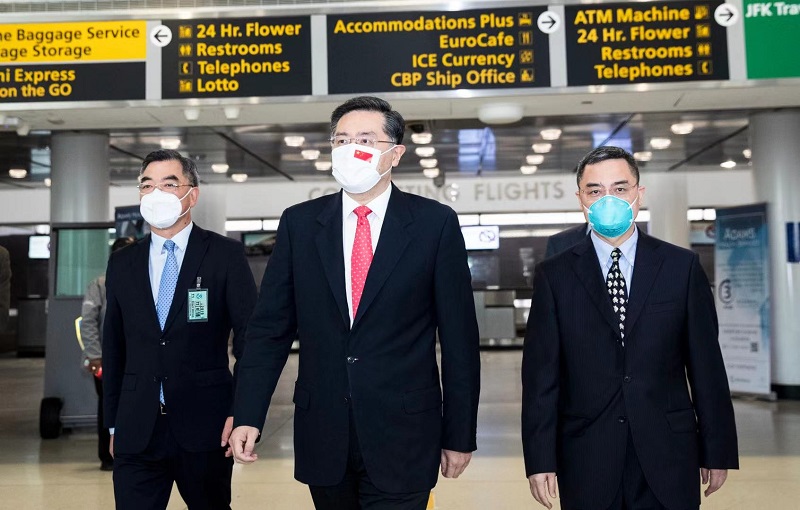
– At an August 9 United Nations Security Council meeting on maritime security, Secretary of State Antony Blinken called out “bullying” by China in the region, resulting in a sharp response by China’s Deputy Ambassador to the U.N. Dai Bing.
– The White House confirmed on August 3 that Vice President Harris plans to repudiate the PRC’s maritime claims in the South China Sea during her planned August 20-26 visit to Southeast Asia.
– Speaking at the Navy’s annual Sea-Air-Space meeting on August 2, Chairman of the JCS, General Mark Milley, highlighted the threat posed by China’s advancements in its military technologies.
– On July 30, vice-chair of the House Armed Services Committee Elaine Luria called on the Navy to reorganize its Pacific Fleet into a “persistent deterrent” to confront China in the South China Sea.
– On July 28, the new Chinese ambassador to the U.S., Ambassador Qin Gang, arrived in D.C. and stated that he will “endeavor to bring China-U.S. relations back on track.”
– On July 28, a bipartisan bill was introduced that would establish an Open Translation and Analysis Center (OTAC), a modern equivalent of the Cold War era Foreign Broadcast Information Service (FBIS), to improve understanding of China and other potential adversaries.
Associated News References:
“U.S., China trade barbs at U.N. over South China Sea,” Reuters, August 9 [Paywall]
“Harris to push back on China’s South China Sea claims during Asia trip,” Reuters, August 3 [Paywall]
“Milley: China Challenge Placing Pressure on International Behavior,” USNI News, August 2
“Lawmaker Calls for New U.S. Maritime Strategy with Pacific Focus,” USNI News, July 30
“China’s New Ambassador to the U.S. Adopts Placating Tone,” The Wall Street Journal, July 29 [Paywall]
“Ambassador Qin Gang Delivered Remarks to Chinese and American Media,” Embassy of the PRC in the United States, July 29
“U.S. congressmen reach back into Cold War armory to respond to China,” Reuters, July 28 [Paywall]

– On August 4, the U.S. recommitted to working with ASEAN under the ASEAN Outlook on the Indo-Pacific.
– On August 4, Chinese Foreign Minister Wang Yi called on a strengthening of “ASEAN centrality” and warned against “pseudo-multilateralism” as a pretext of bloc confrontation in the region.
– On August 3, Singapore Prime Minister Lee Hsien Loong again called on the U.S. and China to de-escalate tensions and avoid conflict.
– On August 2, the U.S. and Indonesia announced the launch of a “strategic dialogue“ and committed to ”defending freedom of navigation in the South China Sea.”
– On July 30, U.S. and Japanese defense chiefs agreed to strengthen deterrence efforts and response capabilities under the bilateral alliance.
– On July 30, U.S. and Philippine defense chiefs announced the restoration of the Visiting Forces Agreement; a vital and historic bilateral military agreement.
– On July 29, U.S. and Vietnamese defense chiefs held talks about defense and security in the South China Sea.
– On July 28, the U.S. pledged to send an additional $25 million to India to support India’s vaccination efforts against COVID-19.
Associated News References:
“China says Asean cooperation shouldn’t be ‘hollowed out’ in swipe at US,” South China Morning Post, August 5 [Paywall]
“Wang Yi Attends the 11th East Asia Summit Foreign Ministers’ Meeting,” Embassy of the PRC in Australia, August 5
“U.S. Support for the ASEAN Outlook on the Indo-Pacific,” U.S. Department of State, August 4
“U.S., Indonesia commit to South China Sea defense in ‘strategic dialogue’,” Reuters, August 3 [Paywall]
“Neither US nor China can put each other down, says Singapore’s PM Lee,” South China Morning Post, August 3 [Paywall]
“Japan, U.S. defense chiefs agree to bolster deterrence,” Kyodo News, July 30
“Duterte restores pact allowing US war exercises,” The Hill, July 30
“US defence chief visits Vietnam to shore up support in Asia,” Al Jazeera, July 29
“Blinken pulls India closer amid challenges in Afghanistan, China,” The Washington Post, July 28 [Paywall]
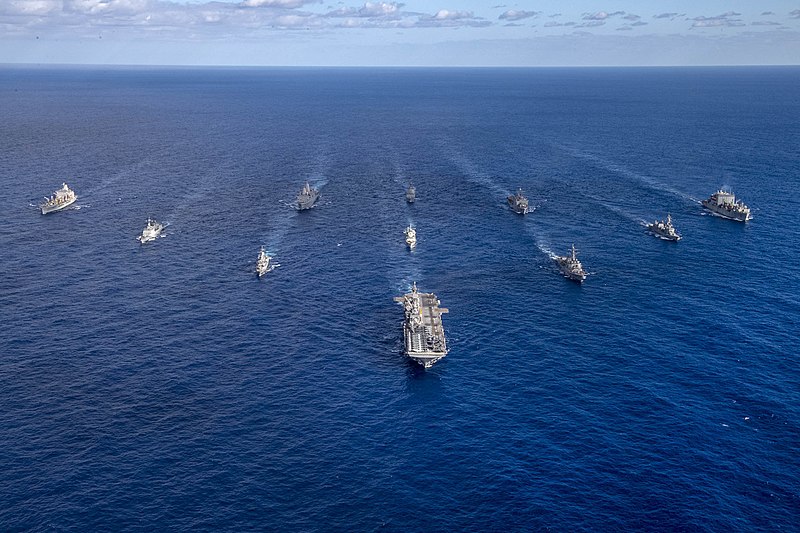
– On August 7, Carlos Del Toro was confirmed as the 78th Secretary of the Navy. In his confirmation hearing in July, Del Toro said he would be “exclusively focused on the China threat and…protect[ing] Taiwan and all of our national security interests in the Indo-Pacific theater.”
– On August 7, China’s PLA Navy began a 5-day naval exercise in the South China Sea and set up a “vast navigation restriction zone” while India and Germany notably sent out warships to the area.
– The Biden Administration has approved and sent a potential $750 million arms deal to Taiwan to Congress for final approval. Taiwan’s presidential office received the news with thanks while China’s Foreign Ministry denounced the sale.
– Two submarine experts have noted that China’s new Type 039D submarine, launched in May, is aimed at being quieter than ever before.
– On July 28, Admiral Michael Gilday underscored the U.S.’ commitment to enforcing the U.N. Law of the Sea in Asia to ensure the “equitable use of international waters.”
Associated News References:
“New U.S. Navy Secretary is “Exclusively Focused on the China Threat,” The Maritime Executive, August 8
“New submarine hints at China’s search for stealth ahead of potential Taiwan war: analysts,” South China Morning Post, August 8 [Paywall]
“China begins naval exercises in South China Sea before India deployment,” Times of India, August 7
“Foreign Ministry Spokesperson’s Remarks on the Approval of Arms Sales to Taiwan by the U.S. State Department [CHN],” Foreign Ministry of the PRC, August 5
“Navigation Warning-Military Training,” Maritime Safety Administration of the PRC, August 4
“First Taiwan Arms Sale in Biden Administration Is Approved,” Bloomberg, August 4 [Paywall]
“India to deploy naval task force into South China Sea and beyond,” CNN, August 3
“German warship heads for South China Sea for first time in nearly two decades amid tension with Beijing,” CNN, August 2
“South China Sea: US will ensure ‘all nations can benefit’ from resource-rich international waters, top navy admiral says,” South China Morning Post, July 28 [Paywall]
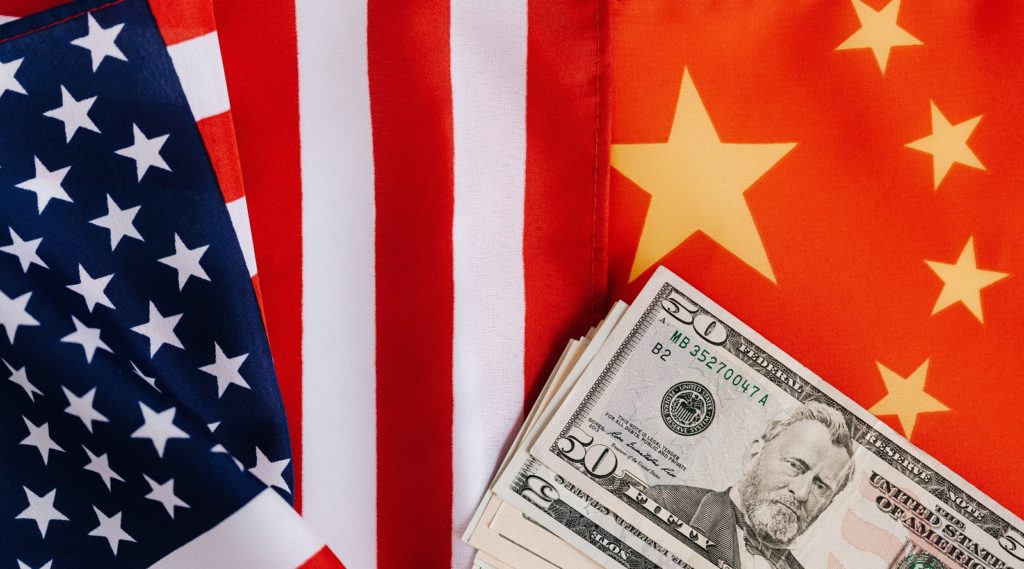
– In an August 4 letter, more than 30 influential business groups urged the Biden Administration to restart trade negotiations in China.
– China is reportedly preparing new legislations in Hong Kong and Macau mirroring the mainland’s “antiforeign sanctions law”, which could subject foreign businesses to retaliation for complying with foreign sanctions.
– China Securities Regulatory Commission Vice Chairman Fang Xinghai said on July 28 that Chinese companies will still be permitted to go public in the U.S. if they meet relevant regulatory requirements.
– U.S. SEC Chair Gary Gensler said on July 30 that Chinese companies will not be allowed to raise money in the U.S. unless they fully disclose their legal structure and potential interference by Chinese government.
– Beijing released a procurement guideline in May, requiring state-owned buyers to purchase 25-100% local contents for 315 items including medical, radar and geological equipment.
– A ranking by Harvard University said China is exporting increasingly diverse and technologically sophisticated goods since the trade war began.
Associated News References:
“Business Groups Call on Biden to Restart Trade Talks With China,” The Wall Street Journal, August 6 [Paywall]
“China Is Exporting More Sophisticated Products Despite Trade War,” Bloomberg, August 3 [Paywall]
“China quietly sets new ‘buy Chinese’ targets for state companies – U.S. sources,” Reuters, August 2 [Paywall]
“U.S. SEC says Chinese IPO hopefuls must provide additional risk disclosures,” Reuters, July 30 [Paywall]
“China will still allow IPOs in the United States, securities regulator tells brokerages,” CNBC, July 28
“China Prepares New Anti-Sanction Laws for Hong Kong and Macau,” The Wall Street Journal, July 28 [Paywall]
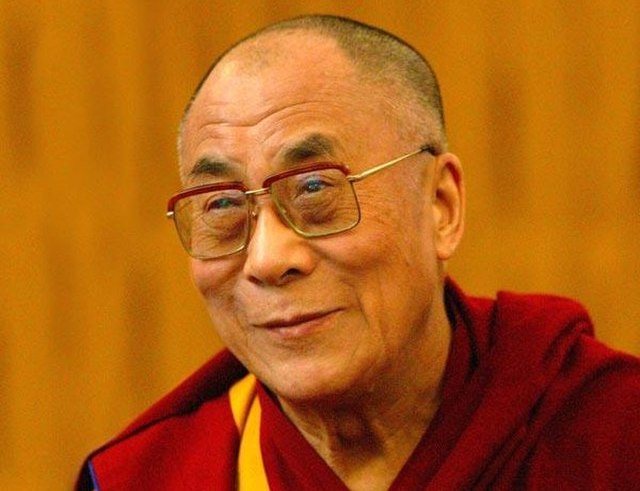
– On August 11, an Advisory Committee will meet with Commerce Secretary Gina Raimondo to review U.S. export and procurement policy, specifically as it pertains to solar power supply chains in Xinjiang which Western officials contend rely on Uyghur forced labor.
– In an August 8 interview with NHK, U.S. Ambassador to U.N. Linda Thomas-Greenfield said the United States has “no hesitation in calling the Chinese out” over “its human rights violations against its own people.”
– To counter Beijing’s controversial National Security Law, on August 5, President Biden signed an executive order that will offer Hong Kong residents 18-month work permits in the U.S.
– On July 28, over 100 Nobel Prize laureates issued a statement criticizing the Chinese government for its repeated requests for the Dalai Lama and Taiwanese chemist Lee Yuan-tseh to be barred from speaking at the Nobel Prize Summit in April.
– On July 28, as part of a visit to India, Secretary of State Antony Blinken met with Ngodup Dongchung of the Central Tibetan Administration, a political representative of the Dalai Lama.
Associated News References:
“U.S. Steps Up Pressure on Businesses Over Forced Labor in China,” The Wall Street Journal, August 9 [Paywall]
“US envoy to UN calls out China on human rights,“ NHK World, August 9
“U.S. Offers Hong Kong Residents Temporary Safe Haven Amid China’s Political Crackdown,” The Wall Street Journal, August 5 [Paywall]
“More than 100 Nobel Prize winners accuse China of ‘bullying’ after effort to stop Dalai Lama and pro-Taiwan independence chemist from speaking at summit,” South China Morning Post, July 28 [Paywall]
“Risking China’s anger, Blinken meets representative of Dalai Lama in India,” Reuters, July 28 [Paywall]
“China approves mixed-use Covid-19 vaccine trials to start in autumn,” South China Morning Post, August 10
“China has stolen enough data to compile a ‘dossier’ on every American,” Washington Examiner, August 6
“US-led digital trade proposal heats up new friction with China,” Nikkei Asia, August 5 [Paywall]
“Huawei CFO’s U.S. extradition case begins final weeks of hearings in Canadian court,” Reuters, August 4 [Paywall]
“Chinese champions wear Mao badges on cycling podium,” Reuters, August 2 [Paywall]
“China keen to position itself for influence in a post-US Afghanistan,” South China Morning Post, August 2 [Paywall]
“House Republicans published a report blaming the COVID-19 outbreak on a Chinese lab leak, but the US intelligence community has yet to back the theory,” Business Insider, August 2
“Press Release: Rep. Lieu and 90 Members of Congress Urge DOJ Probe Into Alleged Racial Profiling of Asians,” Office of Congressman Ted Lieu, July 30
August 10 hosted by Center for Strategic & International Studies
August 4 hosted by Wilson Center
August 4 hearing at Senate Select Committee on Intelligence
August 3 and 4 hosted by Aspen Strategy Group
August 17 hosted by Center for Strategic & International Studies
August 17 hosted by SupChina
August 25 hosted by SupChina
August 28 hosted by National Bureau of Asian Research
September 9 hosted by National Committee on U.S.-China Relations
by Yilun Zhang
August 10, 2021
It is easy to call for a holistic competition between China and the United States when media coverage and government officials consistently continues to, on the surface, validate the belief that the two countries are irreversibly locked in a more competitive relationship. The steady deterioration of the bilateral relationship continued even after President Biden took office in January 2021. His presidency has appeared to indicate that the notion of a “strategic competition,” if not a “strategic rivalry,” or, to be more extreme, a “new Cold War,” is the new status quo of the bilateral relationship. Such a notion will inevitably end up becoming a self-fulfilling prophecy if not addressed in the near term and lead to a potentially dire global situation if China and the U.S. relationship sours further….
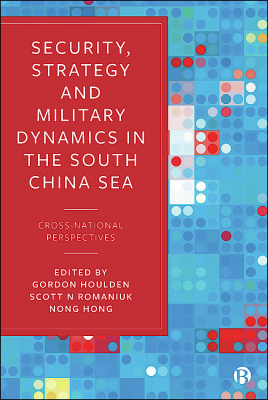
Edited by Gordon Houlden, Scott N. Romaniuk and Nong Hong
August 24, 2021
This volume brings together international experts to provide fresh, accessible, even-handed perspectives on present and future geopolitical concerns in the South China Sea; one of the most strategically important and militarized maritime regions of the world.
The 18+ chapters in this volume encompass the interests and security strategies of each of the nations with a claim to ownership and jurisdiction in the Sea. Examining contexts including the region’s natural resources and China’s behaviour, the book also assesses the motivations and approaches of other states in Asia and further afield.
On Friday, August 6, 2021 Senior Fellow Sourabh Gupta was quoted by South China Morning Post discussing the new generation of Chinese diplomats handling U.S.-China relations.
On Saturday, July 31, 2021 Senior Fellow Sourabh Gupta was quoted by Xinhua discussing the arrival of China’s new ambassador’s in the United States.
On Thursday, July 29, 2021 Senior Fellow Sourabh Gupta discussed the new Chinese Ambassador to the U.S. on CGTN America‘s China 24.
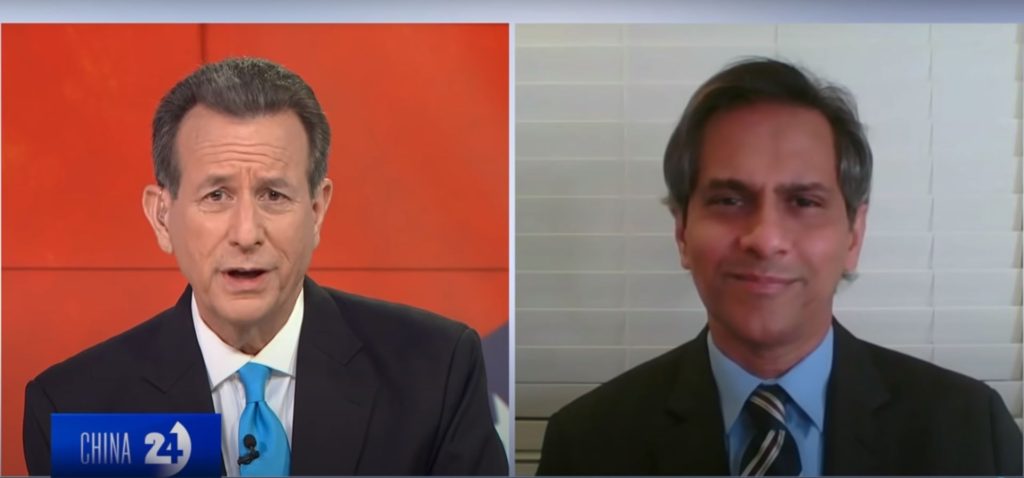

The Institute for China-America Studies is an independent nonprofit, nonpartisan research organization dedicated to strengthening the understanding of U.S.-China relations through expert analysis and practical policy solutions.
1919 M St. NW Suite 310,
Washington, DC 20036
icas@chinaus-icas.org
(202) 968-0595
© 2025 INSTITUTE FOR CHINA-AMERICA STUDIES. ALL RIGHTS RESERVED.